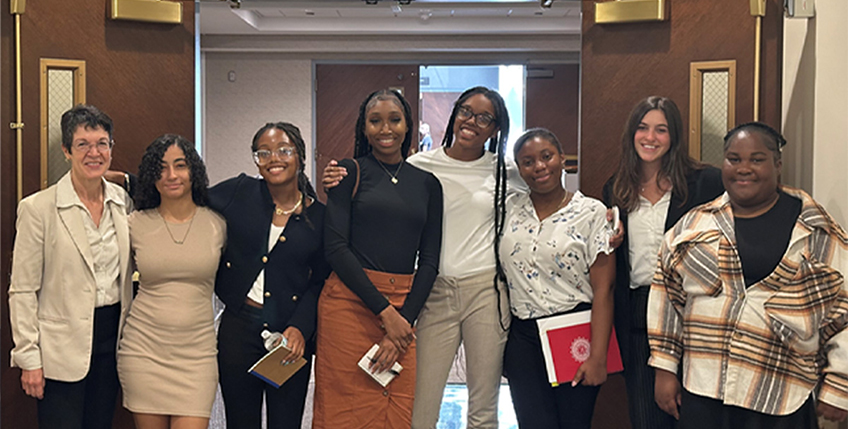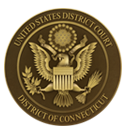

Host a Judge at Your Elementary School
The first week of March as part of Read Across America Week, or at any time, judges can visit elementary schools to read We the Kids by David Catrow or other age-appropriate books. We the Kids is a humorous picture book that helps children understand the U.S. Constitution. It contains the actual words of the Preamble to the U.S. Constitution. Readings are available both in person and online. Recommended age-appropriate books are:
- Turning Pages, My Life Story by Supreme Court Justice Sonia Sotomayor;
- All Rise, The Story of Ketanji Brown Jackson by Carole Boston Weatherford;
- Vote for Our Future! by Margaret McNamara and Micah Player;
- Democracy for Dinosaurs: A Guide for Young Citizens by Laurie Krasny Brown;
- What Can a Citizen Do? by Dave Eggers and Shawn Harris;
- Elizabeth Leads the Way: Elizabeth Cady Stanton and the Right to Vote by Tanya Lee Stone;
- Around America to Win the Vote: Two Suffragists, a Kitten, and 10,000 Miles by Mara Rockliff;
- Marching with Aunt Susan by Claire Rudolph Murphy;
- Granddaddy’s Turn: A Journey to the Ballot Box by Michael S. Bandy and Eric Stein;
- I Know My Rights: A Children’s Guide to the Bill of Rights and Individual Liberty by Rory Margraf.
Write Welcome Letters to New Citizens
Students can welcome newly naturalized citizens by writing letters to them. The court will then use these letters at naturalization ceremonies by giving them to new citizens, reading them during the ceremony, or displaying them in the courthouse. It may also be possible for students to personally deliver their letters during a naturalization ceremony.
Attend a Naturalization Ceremony
The court invites students or community groups to attend a naturalization ceremony at the courthouse and meet with the presiding judge following the ceremony. It may also be possible for participants to attend a naturalization ceremony online. Ceremonies are generally held on Fridays but may be held on other days if requested.
Play a Legal Trivia Game
The school, with the involvement of a judge or attorney, can prepare a class on a legal topic and then conduct a fun trivia game with the judge or attorney. The background preparation/learning component and the trivia game may be held in person or online.
Visit the Courthouse to Meet a Judge
The court can host an in-person or online visit to the courthouse for a class or community group to meet a federal judge, engage in a Q&A session, and/or address a specific legal topic.
Engage with a Career Path Panel
The court can host an in-person or online visit to the courthouse for a class or community group to meet a diverse panel of judges, probation officers, court staff, and/or attorneys. Court participants can speak to students about their work and the paths they took to get to their current careers.
Host a Civics Class Collaboration
Judges and/or attorneys can collaborate with a teacher to help teach a specific topic that is part of the class’s existing syllabus. They can participate in person or online to co-teach a single session, teach multiple sessions, or teach a single day.
Host a Court-Taught Civics Class
Judges and/or attorneys can teach an interactive 50-minute class on a range of topics, in person or online, with course materials provided by the court.
Participate in a Mock Hearing
The court can host a half-day mock hearing in a real federal courtroom. Students will serve as mock attorneys and/or mock jurors and will be coached by local attorneys and a federal judge. This program stimulates critical thinking and fosters civil discourse skills through self-reflection, discussion prompts, and techniques for use in tense situations and controversial conversations.
Participate in a Mock Trial
The court can host a mock trial in a real federal courtroom. Before the trial, the students will study and discuss as a class the mock trial cases and fact pattern. The class will then travel to one of the three federal courthouses in Bridgeport, New Haven, or Hartford. One student will serve as the mock trial judge and will be coached by a federal judge. Other students will serve as mock attorneys and mock jurors and will be coached by local attorneys. After the trial concludes, the students and the judge will meet to debrief. Lunch can be provided.
Interested in any of these programs? Questions? Email public_outreach@ctd.uscourts.gov.

